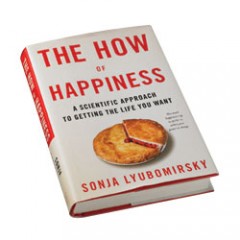I sometimes sit down to write and look up hours later, not having recognized how much time has passed. This typically occurs when the words, sentences and paragraphs come easily to me. It’s rewarding when my writing flows.
 Flow is when you’re so absorbed in what you’re doing that you lose track of time. The concept was discovered in the 1960s by a researcher named Mihaly Csikszentmihalyi (pronounced me-HIGH chick-sent-me-HIGH-ee) as he researched the creative process. Csikszentmihalyi noticed that artists forgot everything else, even their own discomfort, while they worked. He described flow as “total absorption in one’s work.”
Flow is when you’re so absorbed in what you’re doing that you lose track of time. The concept was discovered in the 1960s by a researcher named Mihaly Csikszentmihalyi (pronounced me-HIGH chick-sent-me-HIGH-ee) as he researched the creative process. Csikszentmihalyi noticed that artists forgot everything else, even their own discomfort, while they worked. He described flow as “total absorption in one’s work.”
I relate to the concept of flow and desire to accomplish it each time I work. Because of this desire, the chapter on flow in Sonya Lyubomirsky’s book, The How of Happiness: A New Approach to Getting the Life You Want, was my favorite.
Accomplishing flow states is one of Lyubomirsky’s 12 strategies for happiness. I certainly feel happier and more productive following a flow state.
The key to creating flow is to establish a balance between skills and challenges, Lyubomirsky wrote. You feel anxious or frustrated if the challenge is too difficult and overwhelms your levels of skill or expertise. You get bored if the skill is not challenging enough. Flow, therefore, describes an experience that falls in the right space between boredom and anxiety, Lyubomirsky wrote.
We seek flow because it is pleasurable and fulfilling, and we want to repeat flow experiences because they’re rewarding, according to the author. This causes a problem because, to maintain flow, we have to continually challenge ourselves and stretch our skills. We need to escalate our goals so we can enjoy the struggle and rewards along the way, Lyubomirsky wrote. Flow means we have to be involved in life, being open to new and different experiences and constantly learning.
Aside from the chapter on flow, I didn’t get much from Lyubomirsky’s book. It’s contents are summarized easily by recognizing that attitude is the most critical component of happiness.
As a society, we’ve been conditioned to believe that things like a better job or more money will make us happy. The truth is that these things will only make us happy for a limited time. We attain/obtain what we want and then adapt to them, creating a need to attain/obtain something else to feel happy. In other words, happiness for those seeking it is a moving target. People who want more always will. Contented people will stay that way.
The book follows this introduction with Lyubomirsky’s 12 strategies to achieve greater, long-lasting happiness. I can sum them up in one step: Have a grateful attitude.
In that spirit, I am grateful that I read Lyubomirsky’s book because it caused me to add Flow: The Psychology of Optimal Experience by Mihaly Csikszentmihalyi to my reading list.



Leave a Reply